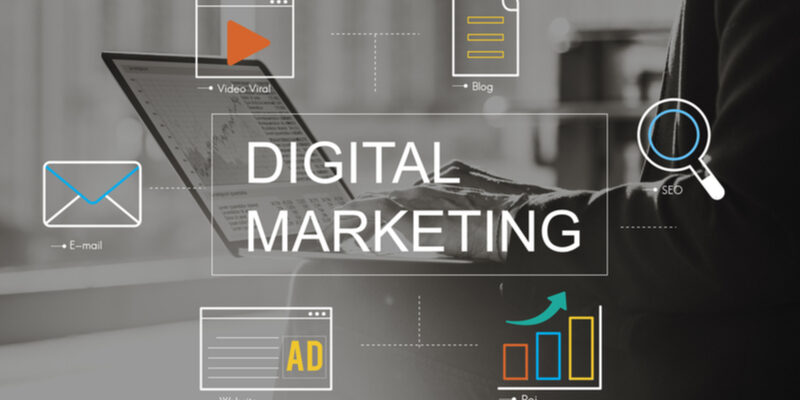Mastering Marketing in the Digital Age
Marketing has evolved dramatically over the past few decades. From traditional methods like print ads and billboards to digital strategies that encompass social media, content marketing, and search engine optimization (SEO), the landscape of marketing has never been more dynamic or exciting. Understanding the fundamentals of marketing and keeping up with the latest trends is crucial for businesses looking to thrive in the modern world.
Table of Contents
The Fundamentals of Marketing
At its core, marketing is about understanding and meeting the needs of customers. This involves several key steps:
- Market Research: Identifying and understanding your target audience.
- Product Development: Creating a product or service that meets the needs and desires of your target market.
- Promotion: Communicating the benefits of your product or service to your audience.
- Sales: Facilitating the transaction and ensuring a smooth customer experience.
- Customer Feedback: Gathering and analyzing customer feedback to improve products and services.
Digital Marketing: The New Frontier
Digital marketing encompasses a range of strategies and tactics aimed at reaching customers online. Here are some of the most effective digital marketing strategies:
- Search Engine Optimization (SEO): SEO involves optimizing your website and content to rank higher in search engine results pages (SERPs). This increases visibility and drives organic traffic to your site.
- Content Marketing: This strategy focuses on creating and distributing valuable, relevant, and consistent content to attract and retain a clearly defined audience.
- Social Media Marketing: Leveraging platforms like Facebook, Instagram, Twitter, and LinkedIn to promote your brand and engage with your audience.
- Email Marketing: Sending targeted emails to prospects and customers to nurture relationships and drive conversions.
- Pay-Per-Click (PPC) Advertising: Running ads on platforms like Google AdWords and social media where you pay each time someone clicks on your ad.
The Power of Data in Marketing
In the digital age, data is king. The ability to collect, analyze, and act on data has revolutionized marketing. Marketers now have access to unprecedented amounts of data about customer behavior, preferences, and trends. This data can be used to:
- Personalize Marketing Efforts: By understanding individual customer preferences and behaviors, marketers can tailor their messages and offers to each customer.
- Optimize Campaigns: Data allows marketers to track the performance of their campaigns in real-time and make adjustments to improve results.
- Predict Trends: By analyzing data, marketers can identify emerging trends and adjust their strategies accordingly.
Integrated Marketing: The Key to Success
An integrated marketing strategy combines various marketing channels and tactics into a cohesive plan. This ensures a consistent message across all touchpoints and maximizes the impact of marketing efforts. Key components of an integrated marketing strategy include:
- Brand Consistency: Ensuring that all marketing materials and communications reflect the same brand identity and message.
- Cross-Channel Marketing: Using multiple channels (e.g., email, social media, content marketing) to reach customers in different ways.
- Coordinated Campaigns: Running campaigns that utilize various tactics and channels to achieve a common goal.
Case Study: Effective Digital Marketing
Let’s consider a case study of a company that effectively used digital marketing to achieve significant growth.
Company: yrskmarketing.com
Challenge: The company needed to increase brand awareness and drive more traffic to its website.
Strategy: https://www.yrskmarketing.com implemented a comprehensive digital marketing strategy that included:
- SEO: Optimizing their website and content for search engines to improve organic search rankings.
- Content Marketing: Creating high-quality blog posts, videos, and infographics to engage their audience and establish authority in their industry.
- Social Media Marketing: Leveraging platforms like LinkedIn and Twitter to share content and interact with their audience.
- Email Marketing: Sending targeted email campaigns to nurture leads and convert them into customers.
- PPC Advertising: Running Google AdWords campaigns to drive targeted traffic to their site.
Results: The company saw a significant increase in website traffic, higher engagement on social media, and a substantial boost in sales.
The Future of Marketing
The future of marketing is likely to be shaped by several key trends:
- Artificial Intelligence (AI): AI is set to revolutionize marketing by providing advanced analytics, automating tasks, and enabling personalized marketing at scale.
- Voice Search: As more people use voice-activated devices, optimizing for voice search will become increasingly important.
- Video Content: Video continues to grow in popularity and is an essential component of any marketing strategy.
- Augmented Reality (AR) and Virtual Reality (VR): These technologies offer new ways to engage with customers and create immersive experiences.
- Sustainability: Consumers are increasingly looking for brands that are committed to sustainability and ethical practices.
Conclusion
Marketing in the digital age is both a challenge and an opportunity. By understanding the fundamentals, staying abreast of the latest trends, and leveraging data and technology, businesses can create effective marketing strategies that drive growth and success. Companies like yrskmarketing.com demonstrate the power of a well-executed digital marketing strategy, showing that with the right approach, any business can achieve its marketing goals.




